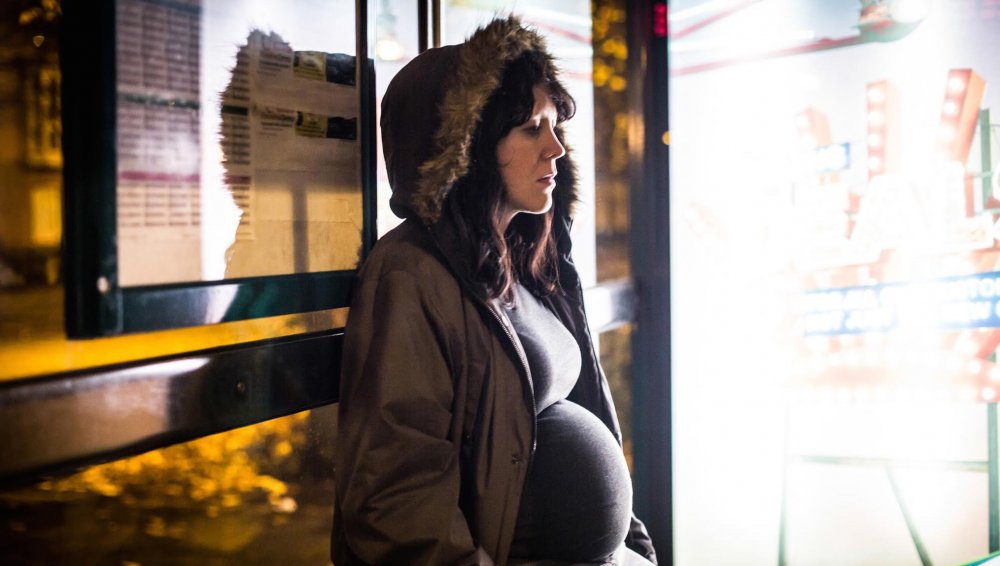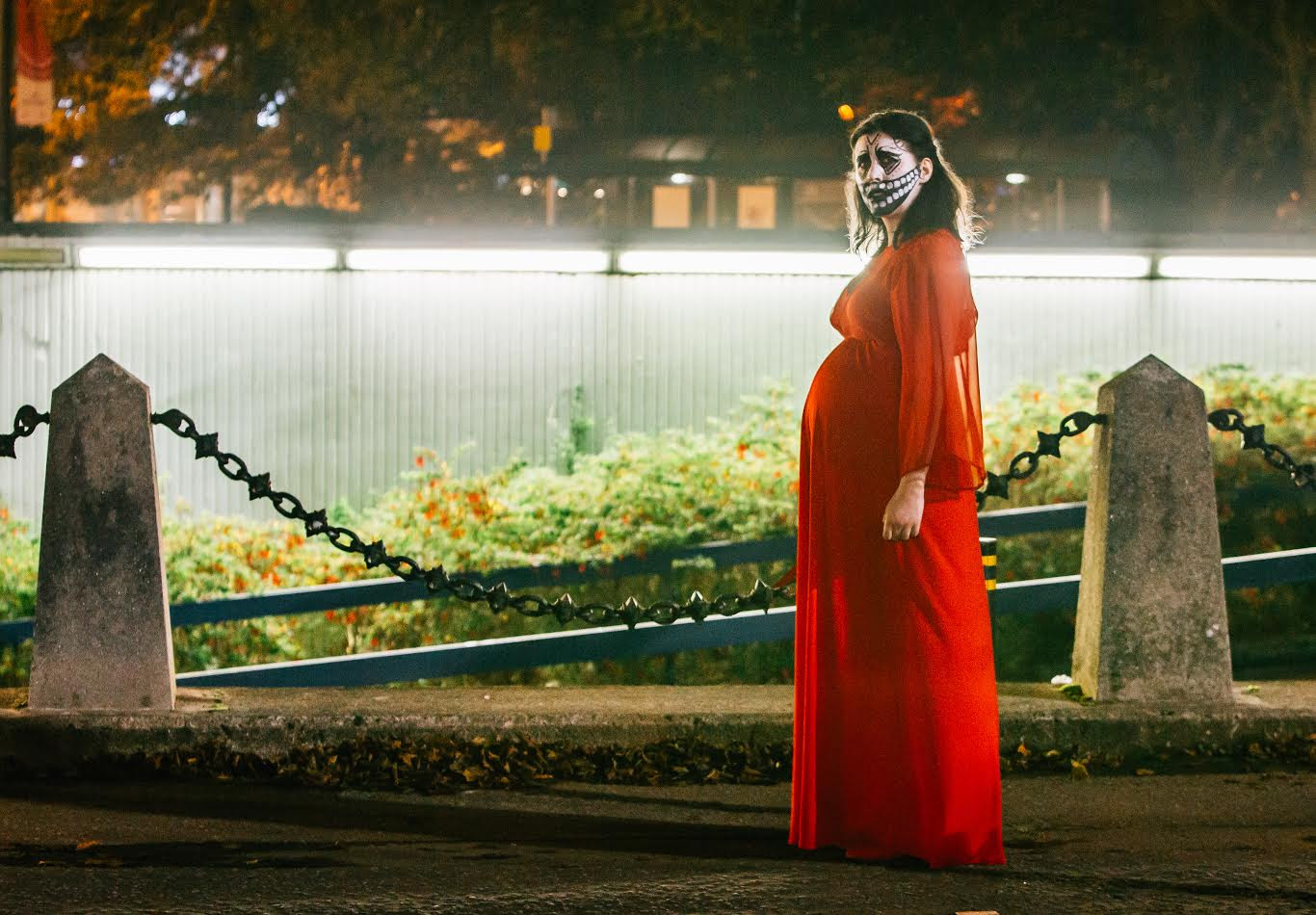This dark, and eventually heartbreaking, slasher comedy written by, directed by, and starring Alice Lowe explores motherhood and grief through a mommy and in-utero daughter murder duo; Lowe herself was pregnant during the project.

Prevenge begins as it means to go on: with a murder. Ruth (Alice Lowe) is pregnant, and she’s just killed a pet-shop employee who’s been trying to sell her a tarantula—an appropriate response, in my opinion. During one of Ruth’s prenatal appointments (featuring some proper British banter), she reveals that she thinks her fetus is, well, not right. We also learn that Ruth is embarking on the journey of motherhood on her own following the untimely death of her husband. Ruth believes her unborn child is encouraging her to kill people to enact revenge on a society that has put the two of them in their current situation. Sleazy men, the twenty-something her husband was intending to leave her for, the boss who cruelly fired her despite knowing about her situation, and the climbing guide present during her husband’s deathly fall are all targets of Ruth’s murderous rampage.
The catalog of horror films touching on anxieties related to parenthood is long: Hereditary (2018) is an examination of passing generational trauma on to your children; Eraserhead (1977) a nightmarish meditation on the unknowns of fatherhood; The Omen (1976) a look into the fear of what kind of child you might raise. Within this group of horror movies is a subgenre of horror that examines the horror of pregnancy. Notable films include Rosemary’s Baby (1968) and The Fly (1986). Prevenge is an entry into the latter category, and though many have come before it, it breaks some new ground as a contemporary and heartfelt examination of the fears women experience during pregnancy. Some of these are common (What if something is wrong with my baby? How will this impact my relationship with my partner? Can I afford this? What world am I bringing this child into?) and some are fears most of us hope never to face (Can I do this while grieving my partner?). That the film was written and shot while Lowe was pregnant makes Prevenge a uniquely personal window into a pregnant woman’s mind.

Prevenge pairs its intimate story with a homespun style, and it works. The camera work is at times a bit rough, an artifact of an eleven-day shooting period, but works to accentuate the tone of the film. The humor, too, draws attention to the intimacy of the story. Ruth’s cutting remarks are shared either with one other character at a time or between herself and her unborn daughter. The humor is extremely British; it might not entirely translate for American audiences, but for those who can appreciate the punchy black comedy, it balances the dark subject matter with laughs without being over-the-top. What does feel over-the-top (and a bit annoying, in all honesty) is the fetus’s voice, which sounds too much like an adult woman’s bad imitation of a child.
*Spoilers below!*
Though the childish voice is obnoxious, it fits with the unsurprising reveal at the end. Ruth is sure that her daughter is the one guiding her hand in these murders; she feels guilty but would rather kill than be chastised or even physically hurt in what seems to be debilitating cramping. There are one-liners throughout about how “baby knows best,” bringing into focus the issue of agency in pregnancy and the sharing of a body. Yet the baby is, after all, just a normal baby. Was the voice she was hearing her own all along? What develops is a complex narrative of the changes those who experience pregnancy go through because of and for their unborn children. Some of the things we say we do for our children, the film suggests, we really do for ourselves.
Pregnancy is an evergreen fear. It’s physically dangerous, psychologically draining, and a period of immense transition. Prevenge is an emotional entry into the pregnancy horror genre that is, paradoxically, as complex in its messaging as it is simplistic in its plot. It presents these ideas in a way that is easy for most of us to understand, even if many of us may not experience pregnancy ourselves. By the end, we can agree: having your mind and body taken over, by someone you’re responsible for but have never met, is scary—especially when you’re doing it alone and still figuring out the world yourself.
